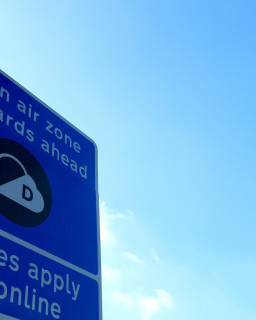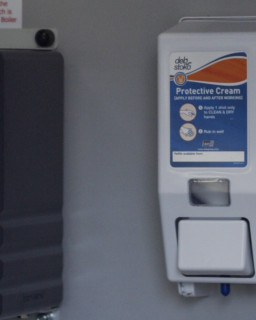Hiring the correct drivers as the logistics sector surges
Make sure you weigh up the possibilities when choosing who you employ
Logistics companies like Amazon and Hermes have recently been inundated with deliveries due to the current situation surrounding the global pandemic. The mass increase in workload has seen organisations such as Hermes cry out for 10,500 new team members along with Royal Mail who have seen a 38% surge in deliveries during lockdown.
Hermes have said they are looking to increase their self-employed couriers by more than 40%, meaning great news for job-hunters who look to take on a new role in logistics whilst wishing to essentially work for themselves. However, this rapid increase may not be so positive for employers who are looking to hire fast in order to solve the issue quickly and keep up with customer demand.
With Hermes already paying 16,000 self-employed delivery staff, the problem they face when hiring drivers in such a short amount of time is ensuring that they are compliant. Any issues with your staff, whether they are self-employed or not, make for bad publicity and you do not want your business to gain a bad reputation from poor standards.
There are important things to consider when hiring self-employed drivers. Whilst it may save you money to begin with, the impact may be greater down the line depending on how rigorous your screening, assessment and training programmes are.
Below are a few things to factor in before you go full steam ahead with giving just anyone a job.
Their vehicle
Looks aren’t everything, but when it comes to a vehicle that is the face of your business, they become pretty important. The old saying goes ‘never judge a book by its cover’ but we all do it subconsciously at times.
Another factor to consider when an individual is using their own vehicle whilst carrying out work for your business, is that you never know when your next customer could be walking past. When a driver makes a stop, the neighbours may see them and their vehicle. You always want a good impression to be made, so as not to deter anyone from using your services.
Self-employed drivers use their own cars and vans to transport their days work and often, this will be seen by the customer. It might not mean much to some people, but seeing your parcel turn up in a rusty van with the wing-mirror hanging off isn’t exactly inviting, it’s more of an eye sore.
Anyone driving their own vehicle for business purposes is categorised as ‘grey fleet’. This means that although they might not be driving your vehicles, if they were to have an accident, you may still be liable as they are driving for a work-related journey.
Their licence
We often see job descriptions signed off with ‘Must hold a clean licence’. So, when considering candidates for a position, do you too think about their previous misdemeanours? Over 2.5 million motorists in England and Wales currently hold three or more penalty points.
According to Motorway.co.uk’s data, around 11,000 people currently have 12 points on their licence, putting them at risk of losing it completely. It is important to consider how many points you would deem acceptable when giving a member of the public a position to drive for your company.
A UK driving licence also states which type of vehicle someone is permitted to drive, including if they can drive large trucks and trailers or HGV’s. Finding out if they have the correct licence for the vehicle they intend to use for their work is essential in order to avoid fines, penalties or even custodial action. Our unique Driive with Reflex app can help avoid these by having the driver sign a declaration to say that they are fit and compliant to drive. More information can be found here.
Their driving knowledge
Understanding UK roads and regulations are critical to someone who is going to be driving on them for up to 9 hours a day. You must also consider they may have passed their driving test in a different country and since moved to the UK.
Take into account the different speed limits and side of the road that should be used, ensure your drivers are confident with the legislation over here. Our Flexiprofiler contains e-learner modules such as ‘Driving on UK roads’ in order to help gain a better understanding of the laws. More information can be found here.
Their insurance
Many people forget that delivery parcels using your own vehicle requires more than fully comprehensive insurance. When you read up around the criteria for the role, you will find it requires further cover. It may not be obvious to newly self-employed delivery drivers but when working with goods that are not theirs, they must ensure they are covered for goods they are transporting should anything go wrong. Having the correct business insurance will make sure that should a parcel be lost or damaged, they are not liable and the customer can make a claim to avoid any nasty disputes.
Their image
People buy from people. If your drivers, who are the face of your business, are rude, not making deliveries on time, losing parcels, or customers are receiving damaged items, then they may not want to use your services again.
Another factor that comes into play here is uniform. Whilst most self-employed couriers will not be provided with a strict dress code or branded uniform, you still want to ensure they are keeping a professional appearance at all times. This will improve customer experience and raise brand awareness. As simple as wearing a lanyard puts customers at ease and makes them feel more comfortable and confident that the job will be completed to high standards.
When hiring individuals to fill your vacancies for driving roles, you should always consider the ramifications to avoid being stung and your business suffering consequently.
Share to:
Find out more
Find out how Reflex Vehicle Hire can help your company.
Call 0330 460 9913 or visit our contact us page.







@2x.png)

